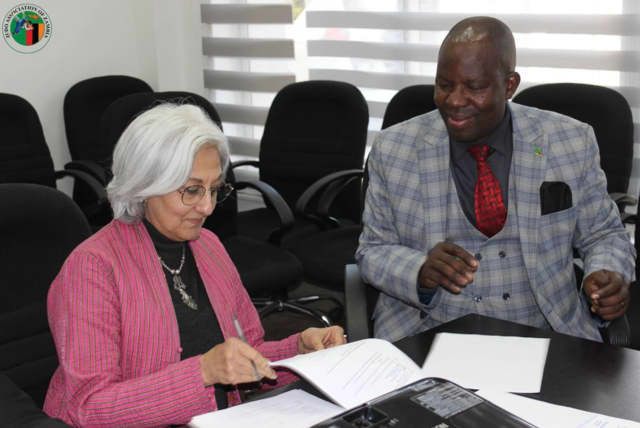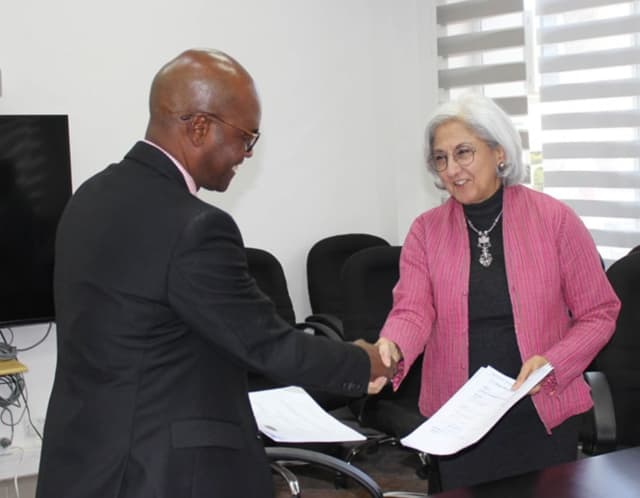This initiative, which is already taking strides in promoting peace, inclusion and resilience among refugee communities and host populations in Zambia, will receive further backing through this strategic partnership.
The signing ceremony, held at the UNHCR offices in Lusaka, was attended by key representatives from all three organisations: Preeta Law, UNHCR Zambia Representative, Amb. Prof. Prosper Ng'andu, Commissioner for Refugees and JAZ General Secretary Mabvuto Ng’uni.
During the ceremony, Preeta Law emphasised that the MoU will advance JAZ’s work, which has already begun and progressed, supporting those forcibly displaced, especially in settlement areas and hosting communities. "I believe the practice of judo helps forcibly displaced individuals to keep their hopes alive, helping them to be resilient when addressing the challenges they face. We are really grateful to JAZ for their support," she said.
Amb. Prof. Ng'andu noted that the involvement of refugees in judo activities delivers many skills and significantly reduces stress, especially for those fleeing various countries. "The sport enhances interactions, creating bonds with the local communities. The tripartite MoU is a great achievement, key to protecting refugees," he said.
JAZ General Secretary Mabvuto Ng’uni expressed delight, stating that the tripartite MoU enhances the implementation of the Judo for Peace programme. "We launched the Judo for Peace programme in Maheba in 2016 and extended it to Mayukwayukwa, partnering with UNHCR as well as the Office of the Commissioner for Refugees, and the signing of the tripartite MoU signifies that we truly have a long-term partnership," said Mabvuto Ng’uni.
He added that with the MoU in place, work will be done in a more formalised way because each party will ensure obligations are fulfilled, which will in turn ensure the Judo for Peace programme offer the most possible to those taking part.
The MoU will ensure access to judo activities, support the inclusion of refugees and other persons of concern, promote judo activities, and increase the capacity of coaches, referees, sports administrators, and judoka, among others.
The Judo for Peace programme has been developing rapidly in the region. During the April visit, Nicolas Messner, head of the Judo for Peace Commission, had the chance to visit Mayukwayukwa refugee settlement in Zambia, as well as Dzaleka refugee camp in Malawi and Tongogara refugee camp in Zimbabwe. In all three countries, he could meet with the UNHCR representatives and the local authorities, praising all for the development of the tripartite MoU to reinforce the potential of judo activities locally and support the global effort.
The International Judo Federation, under the leadership of President Marius Vizer, has been supporting refugees and displaced populations for many years, including the support of the IJF refugee team, whose members will participate in the Paris Olympic Games this summer, and refugee camp initiatives such as the ones in southern Africa. An extensive programme is also running in South Africa (Judo for Peace South Africa) to accompany refugee and local communities who face integration issues. UNHCR has been a strong partner of the IJF in implementing those programmes as well as Norwegian Olympic Committee (NIF) and Judo for Fred (Norway) specifically in the Southern African region. This also come together with the IJF inclusion in the Sport for Refugees Coalition framework.




